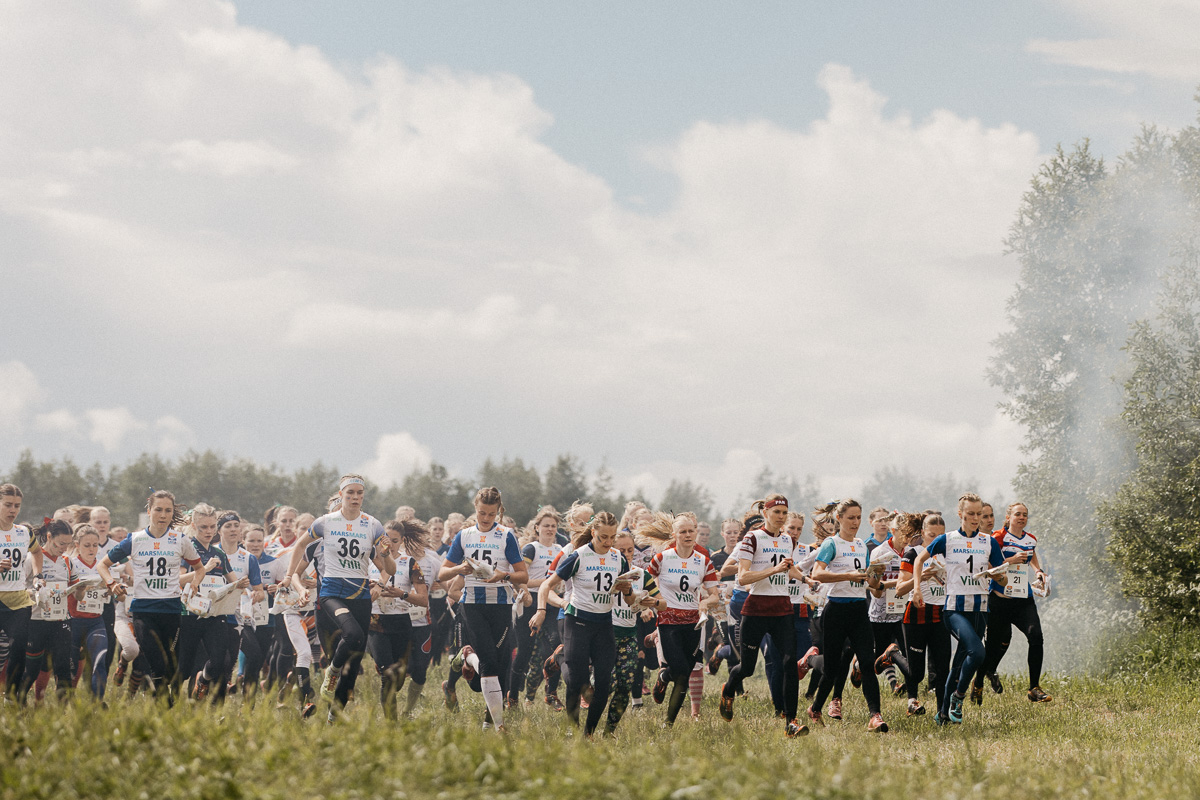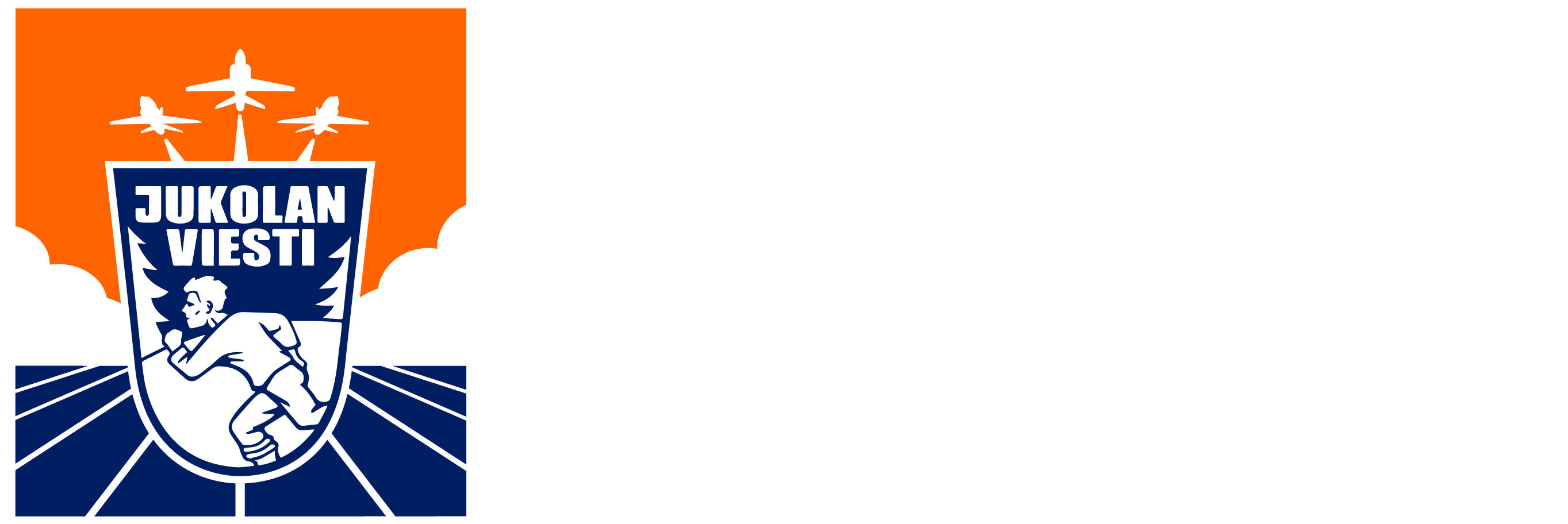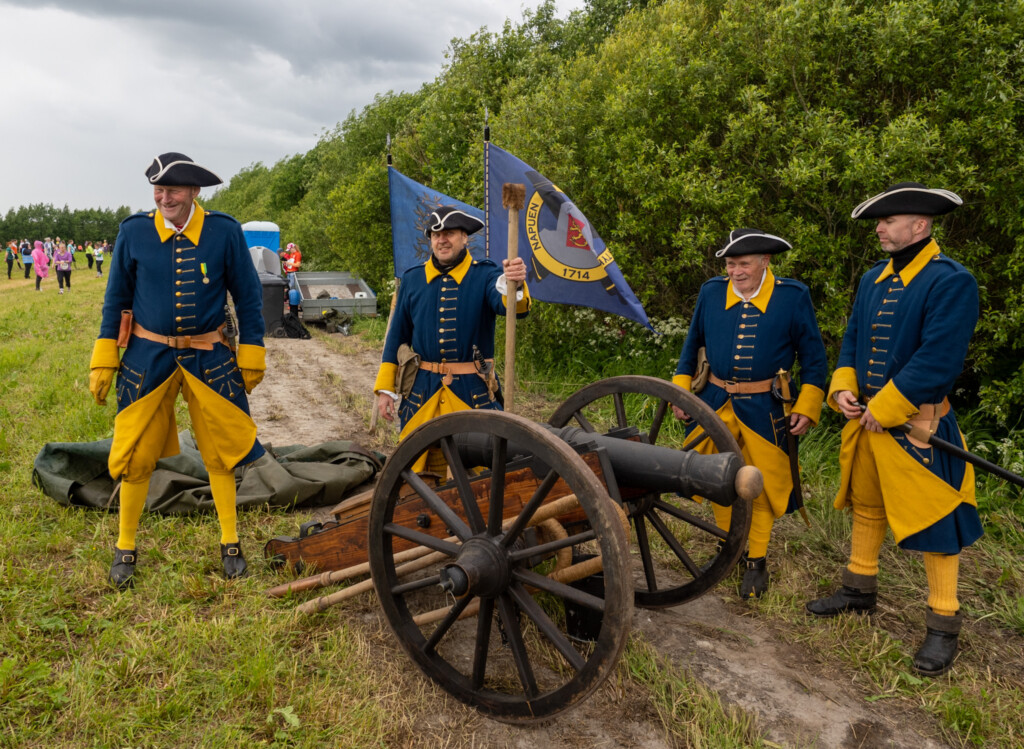
The start of the Venla relay has taken place. Leading runners in the picture. Photographer Jaakko Sorvisto
A cloud of smoke rose into the air as the Venla relay started precisely at 2:00 PM at Lakia-Jukola. Over 1,400 orienteers set off and disappeared into the bushes at the north end of the Kauhava airfield to the tunes of “Highway to Stranger Zone.”
With number one on her chest, last year’s winner IFK Göteborg’s starter Victoria Hästad Björstad launched onto the course. Next to set off, with the smallest numbers, were OK Linné, Kalevan Rasti, Stora Tuna OK, Nydalens OK, and Tampereen Pyrintö.
The first leg is 8.0 kilometers long. The second leg is 7.9 kilometers, the third 6.8 kilometers, and the fourth 9.0 kilometers. All legs have variations. The winner is expected at the finish line around 5:00 PM.
An honorary task for the tradition association
A cloud of smoke burst from the three-pounder cannon, which is made according to a 300-year-old model. The starting shot was fired by the history association Napue’s tradition, with the cannon operators dressed in blue and yellow Carolean soldier uniforms and tricorne hats. Moments before the start, the cannon was guarded by Mikko Jylhä, Jari Viertola, Ilmari Karhu, and the association’s chairman Reima Pukkinen.
– This is an honorable and exciting task for us.
There is always some tension in the air when dealing with black powder, as you never know how it will ignite.
They had promised the organizers that the starting shot would be fired at 2:00 PM plus or minus a few seconds.
– Apparently, the order of finish decides the winner, not the exact second the start occurs.
The Caroleans were soldiers of the Swedish army who participated in the Battle of Napue in Isokyrö in February 1714 under the leadership of General Carl Gustaf Armfelt. The Caroleans got their name from two kings named Charles.
The last field battle of the Great Northern War was fought against Russian troops with unfortunate results. That battle is considered to mark the beginning of the era known as the Great Wrath.

